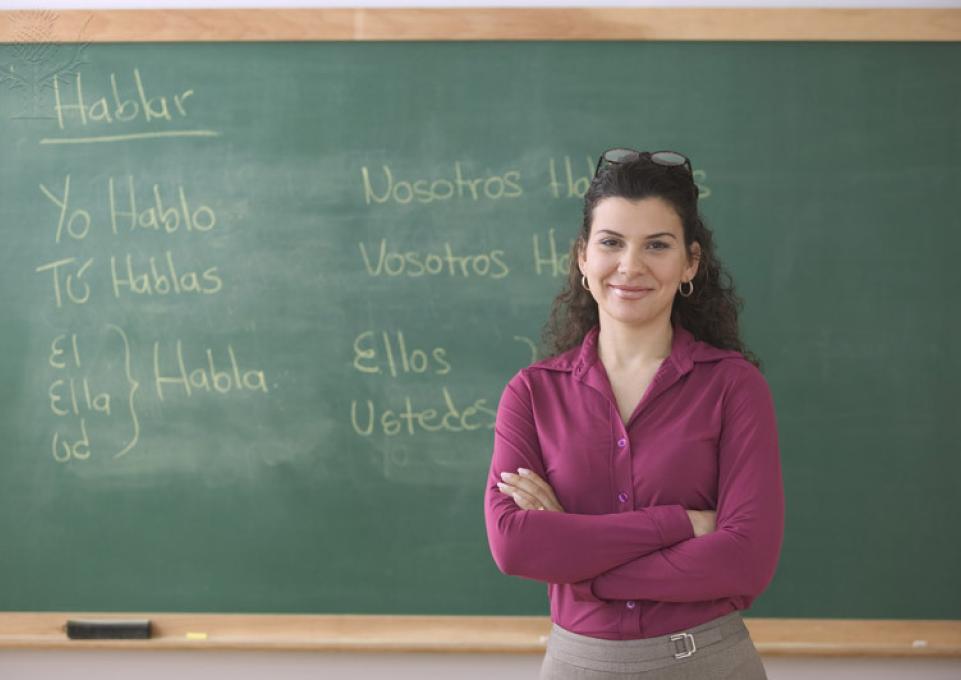
Two years ago Buffalo State’s Modern and Classical Languages (MCL) Department began evaluating what kind of impact its graduates have on the world and how they could best prepare them.
The MCL faculty—with input from Distinguished Emeritus Professor of Philosophy George Hole—determined that students should emerge from the program with more than the ability to speak languages fluently or possess an employable skill. They wanted graduates to have a firm understanding of other cultures and a broader engagement with the world. In others words, they wanted to groom ambassadors.
“I’ve worked with accreditation and assessment and thought this kind of exploration would provide a whole new foundation for our department,” said Mark Warford, chair and associate professor of MCL. “We asked: What does it mean to be an ambassador? What are the outcomes for courses and program content? What should the major look like? And we came up with a model for teaching that ensures a high level of student engagement.”
In early December, the faculty officially adopted the ambassador model, which combines the attributes of a diplomat, an engaged professional, a global citizen, and a scholar.
Hole, who recently retired from Buffalo State, said he worked with other departments within the School of Arts and Humanities after Dean Ben Christy asked the chairs to draft similar profiles.
“The profile is part of larger initiative for every academic department to have a Statement of Teaching Effectiveness,” said Hole.
In the MCL case, faculty emphasized that ambassadors consider “the greater good,” which extends beyond his or her home country.
“We want our students to become engaged in the wider community—to go beyond text and classroom learning,” said Warford. “We are all citizens of the world. You don’t need to leave Erie County to use modern languages and cross-cultural skills in a helpful way.”
The ambassador model also can be used as a recruiting tool for both majors and minors.
“The minor complements many majors on campus—fashion and textile technology, social work, criminal justice, and business,” said Warford. “Students are learning language for life. We can ill-afford to work in silos in our comfort zones. We need to hone our knowledge of other cultures and then use that knowledge in professional and altruistic contexts.”
A real-life example occurred recently in a Tim Hortons restaurant in which Spanish major Hannah Kroll spotted a woman struggling to have her order understood.
“I translated,” Kroll wrote in her autonomous language learning journal. “She told me, ‘Muchas gracias’ and had tears in her eyes. It seems like she was frustrated and in pain. I know I don’t speak Spanish perfectly, but I feel very happy and proud that I have the capacity to help and translate.”
On Friday, January 29, the MCL Department will officially introduce the model to the campus during a celebration from 4:00 to 6:00 p.m. in E. H. Butler Library 210. Current and potential minors and majors, as well as interested faculty, are encouraged to attend. There will be information on study abroad, community engagement and other opportunities within the new model. Alumni and current MCL students will share testimonials of their experiences.
To RSVP to the ambassador model celebration, call (716) 878-5414.
About the Modern and Classical Languages Department
The MCL Department offers bachelor’s degrees in French, French education, Spanish and Spanish education, along with minors in French, Spanish, German, and Italian, and a master’s degree in foreign language education. It recently added Arabic to its class offerings. The department is composed of eight full-time faculty members and several part-time faculty.
